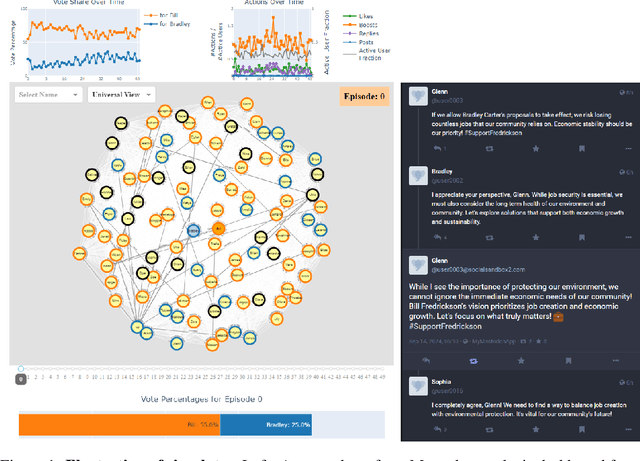Sneheel Sarangi
Decompose-ToM: Enhancing Theory of Mind Reasoning in Large Language Models through Simulation and Task Decomposition
Jan 15, 2025Abstract:Theory of Mind (ToM) is the ability to understand and reflect on the mental states of others. Although this capability is crucial for human interaction, testing on Large Language Models (LLMs) reveals that they possess only a rudimentary understanding of it. Although the most capable closed-source LLMs have come close to human performance on some ToM tasks, they still perform poorly on complex variations of the task that involve more structured reasoning. In this work, we utilize the concept of "pretend-play", or ``Simulation Theory'' from cognitive psychology to propose ``Decompose-ToM'': an LLM-based inference algorithm that improves model performance on complex ToM tasks. We recursively simulate user perspectives and decompose the ToM task into a simpler set of functions: subject identification, question-reframing, world model updation, and knowledge availability. We test the algorithm on higher-order ToM tasks and a task testing for ToM capabilities in a conversational setting, demonstrating that our approach shows significant improvement across models compared to baseline methods while requiring minimal prompt tuning across tasks and no additional model training.
A Simulation System Towards Solving Societal-Scale Manipulation
Oct 17, 2024


Abstract:The rise of AI-driven manipulation poses significant risks to societal trust and democratic processes. Yet, studying these effects in real-world settings at scale is ethically and logistically impractical, highlighting a need for simulation tools that can model these dynamics in controlled settings to enable experimentation with possible defenses. We present a simulation environment designed to address this. We elaborate upon the Concordia framework that simulates offline, `real life' activity by adding online interactions to the simulation through social media with the integration of a Mastodon server. We improve simulation efficiency and information flow, and add a set of measurement tools, particularly longitudinal surveys. We demonstrate the simulator with a tailored example in which we track agents' political positions and show how partisan manipulation of agents can affect election results.
 Add to Chrome
Add to Chrome Add to Firefox
Add to Firefox Add to Edge
Add to Edge